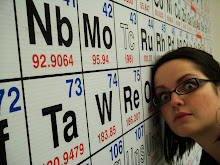- Did they follow directions? "Fox" would probably do better on that one than "School Train." The latter's message was extremely ambiguous.
- Did the chosen media types and effects enhance the message, or distract from it? "Fox" would fare better on this count. There was way too much going on in "School Train."
- Was it a finished presentation? Both videos were very nicely done, showing attention to detail.
- Does the presentation clearly communicate student understanding of the subject matter? This may be the most important one, and I think both videos accomplished it fairly well.
On another multimedia-related note, the web video Epic 2015 is an extremely interesting commentary on the past, present, and possible future of the Information Age. This truly thought-provoking video takes our current trajectory towards limitless and unregulated information and self-publishing and runs with it, positing that in the very near future print news will be absolutely defunct, most news will be machine-generated and tailored to individual tastes, and because of this, the quality of information available to a person will depend entirely on how much "breadth, depth, and nuance," the person wishes to seek out, aka how "savvy" the person is. Also, anyone and everyone will be able to share/publish as much of their personal life story and knowledge as they see fit, and few distinctions will be made in reporting between fact and mere gossip. This has many implications for my future potential classroom, the largest of which in my eyes are the facts that many students will come to me having already published work on the internet, however informally, and that many will likely arrive greatly impaired in their ability to distinguish facts from opinion and speculation. More Epic 2015 commentary. . .
Watching Do I Belong Here?, Sabrina's journey, I generated a number of ideas for possible projects in a science classroom. One big concept in Ecology is that of the "niche," where you fit in with your fellow organisms and environment. I might ask the students to tell their own story - what their niche was in the past, what it is now, and what they hope their niche will be - similar to Sabrina questioning what she really needed in her life, and whether or not "this" place was where she needed to be. It would also be really interesting to assign students individual organisms whose "niche stories" they'd have to tell, focusing on where they fit in in different habitats and at different stages of their lives. Another possibility is to use this as an inspiration for a beginning of the year get-to-know-you type activity, literally asking the students to share their personal life stories for their own life stories' sake. I'm really excited about that organism "niche story" idea. AHHHH!!!! It's so awesome.

No comments:
Post a Comment